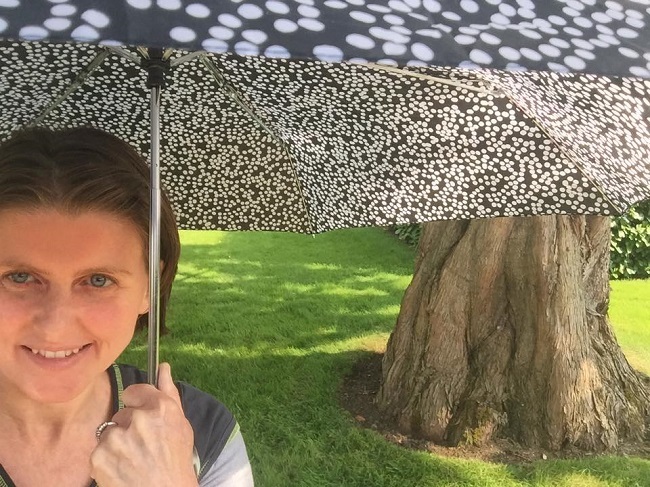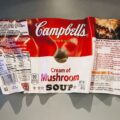I often ask myself the question, “Why do we get allergies?” and “Why do other people NOT suffer at all?” It does seem quite unfair. I eat a very healthy diet as a result of avoiding so many nasties, I don’t smoke, don’t drink that much, try to keep fit and do as much exercise as I can, so what’s the key?
There are lots of theories shared into why allergies are rising:
- The hygiene hypothesis – too much cleanliness and sterilisation during childhood
- Antibiotics – or other strong drugs when young can affect the gut and skin microbiome
- GM foods – We’re supposed to eat natural, normal unmodified foods.
- Global imports in favour or local produce – Older, stored for longer, less fresh with fewer nutrients.
- Modern vaccinations – We’re told they are completely safe but do they affect the immune system for some people?
- Lifestyle changes – Busy, attached to devices, more stress, less local community and downtime in nature.
- Processed foods – additives, fillers, emulsifiers, bulking agents; could all be causing inflammation in our bodies.
- Pollution – Ever growing outdoor and indoor pollution caused by smog, chemicals, production of energy, electromagnetic frequencies, gases etc. all add up to cause added stress and inflammation on the body
- Chemicals in cleaning products – and everything we bring into our insulated sealed up homes can add to the indoor air pollution. Reduce the load in your home by switching to natural skin care products, cleaning solutions and reduce candles, perfumes, fragrances, mould, dust etc.
- Climate change – meaning earlier and longer seasons, creating more pollen and more allergens lead to pollen bombs and a hay fever increase over the years.
- Built up areas – More people have hay fever now than ever before for many reasons. More pollen but also more built-up areas with less soil for pollen to be absorbed so it blows around all the more in windy days.
What could have caused my own allergies?
I have had allergies since I was a baby, the first being eggs, hayfever and animal hair, and then peanuts and other nuts and various other mild reactions to other foods. I grew up in the countryside, playing outside all year round, in the garden, nearby woods, the pond at the bottom of our road. It certainly doesn’t follow the theory of some experts. My mother (no offence mum) did not enjoy cleaning, and our house was not over spotless by any means. It was clean enough but she never used dettol surface cleaners and cooked everything fresh, even bread and cakes. I feel dreadful when I remember how ungrateful we were for all this effort – shunning the delicious home baked bread in favour of the shop bought sliced ‘polystyrene’ our friends had.
Some people are just genetically predisposed to allergies
I’d never had a McDonalds until I was about 14 years old, rarely had processed foods and lived an active outdoor lifestyle – so there must be something else happening here. Why has my body decided to react in this way to perfectly harmless food stuffs? I know that I am safe when I cook at home and am much better with organic, fresh, local produce. Fruit picked from the tree contains far far less allergens than fruit stored in fridges for months before it reaches the supermarket shelves.
Allergies are on the rise
Allergies are rising, or so we are told, but I don’t know many people who do have them. It is still a very lonely, confusing and difficult problem within my peer group (I’m 36). I’m pretty sure my sister also has allergies as I can recognise all the symptoms in her, but so far has not really had these diagnosed. My younger brother on the other hand has no allergies what so ever – the lucky so and so. Neither of my parents or grandparents have any allergies so it doesn’t seem to have been hereditory in my case.
What is the root cause and can we reverse it?
What frustrates me is the seeming lack of any research into the causes. Avoidance seems to be the key, and when you cut foods out of your diet you then react even more severely when you do come across them by accident, often leading to an increasing number of new allergens to add to the list. We aren’t getting to the root cause – just treating the sypmptoms with steroids, anti-histamines and avoidance. I feel very strongly that this is not the answer.
Peanut desensitisation for children
This year we have heard about some research, the first in the world, where a group of young children were desensitised to their peanut allergies under very strict research conditions and can amazingly now eat handfuls of peanuts! It’s a form of immunotherapy Well done Cambridge University for this amazing result. I can’t stand even the smell of them so the thought of having to do this just makes my stomach turn, but what a promising result this is. What freedom allergy sufferers would regain if they could eat a meal without worrying whether they will react to hidden ingredients.
What do you do to reduce your allergies?
I think there is a lot to be said for buying fresh, local, seasonal produce, and only buying what you need for a few days instead of stock piling and then wasting food.
If you have allergies I’d love to hear from you. Why do you think you have them? Do you have any theories? Would you like to try immunotherapy?












Suggestion, It’s to do with two things,
1)despite your own experience I’m convinced that a key factor is much less exposure to the natural environment of a more protected generation of kids than any we’ve seen, more significantly I suspect that:-
2) the subconscious expectation generated by our increasing ability to analyse and define has created a reverse placebo effect, as kids, my generation (55ish) were never tested for allergies, if it wasn’t pollen it didn’t exist, few people developed them, now,(because the bio-med corporations have a vested interest in selling analysis and solution) everyone is tested for allergies, there’s a general rule, you do tend to find what you look for, look for allergies and you find allergies, the placebo effect works both ways.
Check out Bad Science by Ben Goldacre for some good stuff on placebo effects.
Hi Steve
Thanks for the comment. I kind of agree and disagree. In the case of the current rise in allergies I think you are completely right. We’re obsessed with banishing every germ on the planet and havine pristine shining homes. I think it’s a lifestyle change too, less exercise, more sterile environment, less playing outside and exposure to diseases and bugs so that immune systems don’t develop and for some reason this is resulting in allergies.
This doesn’t explain why I have them. I am an exception to the rule. I have not been tested for allergies – in fact I am getting tested for the first time later in July – although I don’t think I’ll learn an awful lot from that. When I got my nut allergy it was unheard of and I just tried to avoid them. I think in some ways it’s gone too far in the opposite direction and schools become too frightened to accommodate children with allergies in fear of legal retaliation should anything go wrong.
I remember one occasion when I was at school. The meal was salad with peanuts on top. I left my peanuts on the side of my plate, knowing I couldn’t eat them. The dinner lady on duty – and you know who you are – forced me to eat them saying I was being fussy. She got her just desserts when I projectile vomited on her sensible flat no nonsense loafers.
However I do agree that I think the stance that the medical profession has taken may be making the situation worse. By encouraging all parents to avoid their children eating peanuts until they are three years old to avoid peanut allergy may now be proven to be exactly the opposite to what we should be doing. Now the thinking is to introduce small quantities as young as one years old and immune systems should develop properly and allergies could become a thing of the past.
Anyway I am on a rant now so I’ll stop. But little and often of everything is surely more sensible than avoiding things that might have caused a reaction. Cutting foods out completely leads to worse and more frightening reactions when foods are eaten by mistake.